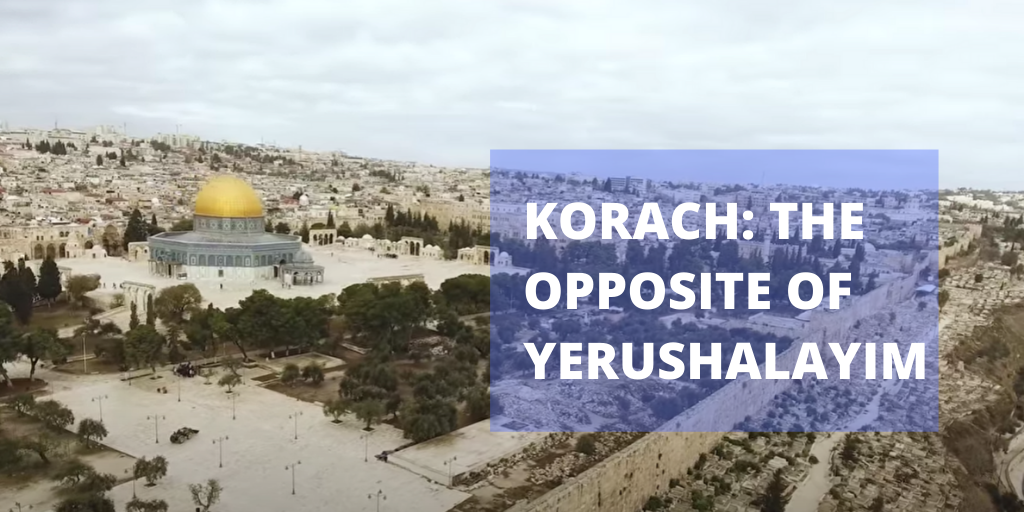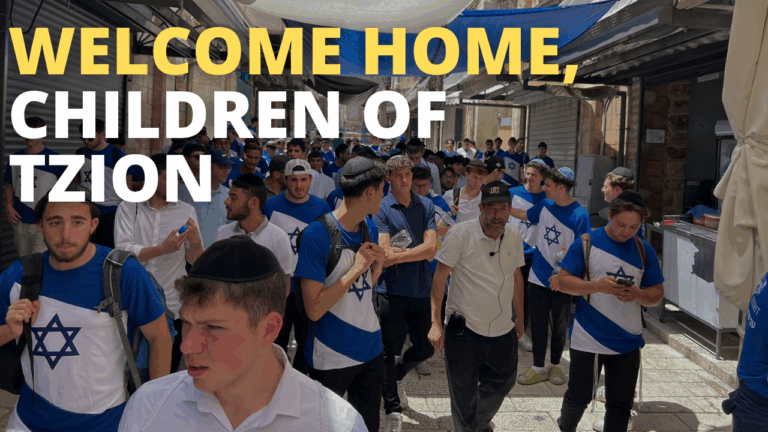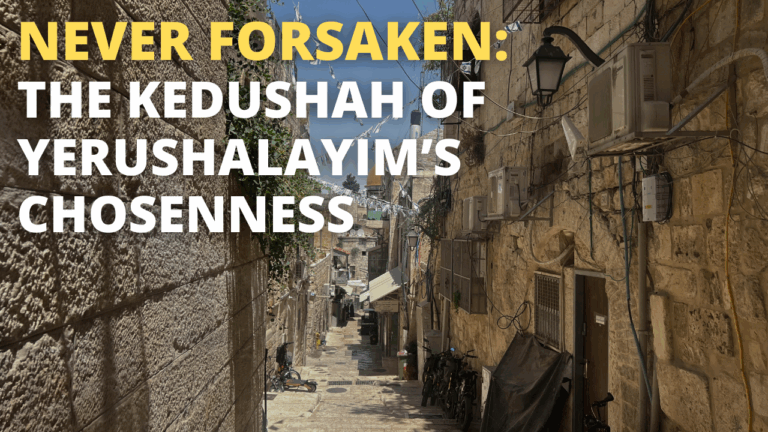Korach: The Opposite of Yerushalayim
Korach’s rebellion was a complex affair. While other negative episodes in the desert focused on a single complaint (lack of food, lack of water etc.) Korach and his group make several distinct claims. First, Korach seems to challenge the leadership on Moshe and Aharon on the basis that “the entire congregation are all holy, and the Lord is in their midst, so why do you raise yourselves above the Lord’s assembly?” Then, Datan and Aviram complain about leaving Egypt. The tribe of Reuven had a grievance that they were skipped over for leadership. Other members of the tribe of Levi were jealous of Aharon who was chosen to the Kohen Gadol.
Korach was certainly an arrogant and wicked man who was ill-intentioned in his rebellion. Yet, one might think that he should at least be admired for his ability to unite a diverse group and bring them all under the same movement. Is that not a skill and accomplishment that should be worth something? After all, even a king as wicked as Achav had a merit of bringing unity to a segment of the Jewish people. Maybe, even while we repudiate Korach’s rebellion, we should think of him as containing a positive leadership quality of creating a unifying (albeit negative) message? Why is he remembered solely for fragmentation and splintering?
Rabbi Eitan Bendavid, in a shiur entitled “Korach and the Breakdown of Civil Discourse,” suggested that Korach’s rebellion is not the type of unity that the Torah seeks. Korach was a populist rabble rouser who manipulated the grievances of different groups to create the illusion of a mass movement but it was all for his own personal advancement. The hallmark of a positive mass movement is that the different groups understand that their perspective is part of a greater whole and all the parts are necessary to create the complete truth. They can then work together towards
bettering the collective. Korach, though, clearly did not see things in that way. Rather, he believed that he had a right to power and he cynically manipulated other people to jump on the bandwagon, unwilling to truly value other people.
In this regard, Yerushalayim is the polar opposite of Korach. Yerushalayim is the place to which all twelve tribes ascend to the Beit HaMikdash. As we know from stories in Tanach, the tribes did not always see eye to eye and presumably looked and felt distinct at these pilgrimages. And yet, the Talmud Yerushalmi tells us that Yerushalayim was the city that made them all into friends. Each group felt unique and yet simultaneously part of something larger, ready to contribute their unique talents and yet listen and gain from others’ perspectives.
This is the reason that Yerushalayim concludes with the word “shalem” or “complete.” Any single perspective, as refined and idealistic as it might be, can never be “complete.” Rather, one must bring together different personalities and perspectives to create completion and try to recreate God’s vision. Therefore, Yerushalayim, which brings together the twelve tribes, is called “completion.” Korach, on the other hand, for the rest of history, will be known for fragmentation and infighting.



